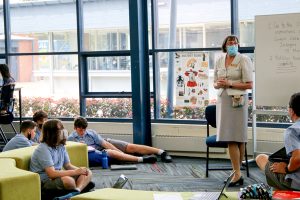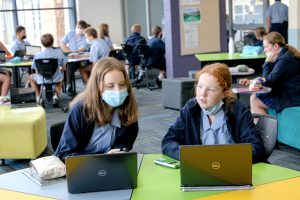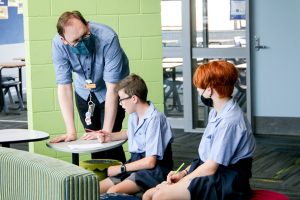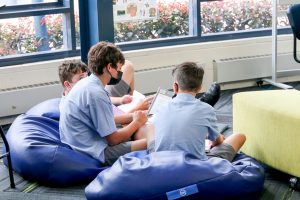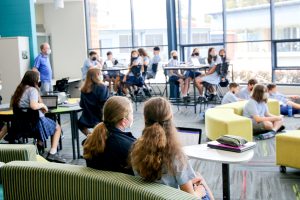Mathematical inquiry
This year, once a fortnight, two Year 8 STEM classes will combine for their Maths lesson in a large breakout space in our middle school. During this time students will work collaboratively to explore questions and scenarios posed by their teacher, Ms Missen. This approach will trigger curiosity and allow for meaningful links to real life to be explored. There will also be opportunities for cross-curricular investigations.
We are very excited to be able to afford our students with this opportunity for discovery and inquiry.

